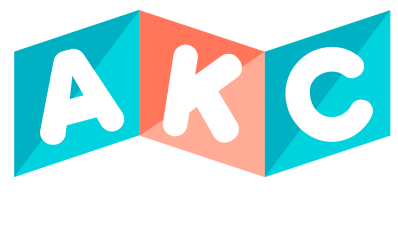Every child struggles with focusing and behaving at one time or another. But with time, they develop a habit of staying focused and behaving like a good kid. However, if your child isn’t focusing well even after multiple attempts or following several techniques, your child could have ADHD or attention deficit hyperactivity disorder.
ADHD can affect a child at school, at home, and friendships.
What is ADHD?
Attention deficit hyperactivity disorder (ADHD) is a medical condition that includes the inability to stay focussed, an excessive movement that is not fitting to the setting, and hasty acts that occur immediately without thought. A child may develop ADHD in school, at home, and friendships.
Read more: Sore Throat: Causes, Symptoms, and Treatments
The signs ADHD kids may show include:
- Inattentive: Staying focused is one unique issue found in ADHD kids. Such kids are easily distracted, can’t concentrate, and have trouble staying on task. Other signs include not paying attention to details, such as not focusing well on directions, missing essential details, and being unable to finish what they started. They are often absent-minded, may daydream, and lose track of things.
- Hyperactive: Getting bored, fidgety, and restless are some common signs found in ADHD kids. These kids find it challenging to sit still, stay quiet, make careless mistakes, and disrupt others. ADHD kids may also climb, jump, or roughhouse.
- Impulsive: ADHD kids react haphazardly, often interrupt, and might find it hard to wait. These kids will also act in risky ways, may do things even when not requested, and take things that aren’t theirs. Such kids are also very emotional.
Parents and teachers may notice ADHD resembling signs in young children and may declare the kid has ADHD. But it isn’t usually the case. Kids can be easily distracted, impatient, restless, or even impulsive. These behaviors don’t necessarily mean the child has ADHD.
Kids gradually start paying attention to details. It takes them time to develop. Parents and teachers are their best guides. However, if your child isn’t getting any better, it could be because of an inefficient way to guide, or perhaps the kid is going through ADHD. Your child could not pay attention, sit down, listen, or wait even after your continuous efforts. If these are the signs, it’s time to consult an ADHD specialist.
What Causes ADHD?
It’s unclear what triggers ADHD. Experts believe that it’s mostly inherited. Children with ADHD have parents with the same disorder. Premature births are also found to have this disorder. Moreover, pregnant women taking drugs can also cause ADHD in their children.
Tests have shown that ADHD doesn’t come from excessive screen time, poor parenting, or taking too much sugar.
How is ADHD Diagnosed?
Book an appointment with a doctor when you suspect your child may have ADHD. The doctor will run a thorough test on the patient, including assessing your child’s hearing and vision to ensure if there isn’t something else causing the symptoms.
Doctors start the test by asking about your child’s behavior, health, and activity. They will talk to the parents and children and ask if they have observed anything suspicious. The doctor may also ask you to complete a checklist of your child’s behavior. They might even ask the teacher to do the same if they have found something suspicious about the kid’s behavior.
Read more: Checkup Checklist: 1 Month Old
Once the tests are completed, the doctors will produce their diagnosis if it’s clear that:
- The child struggles with attention to detail, hyperactivity, or impulsivity that isn’t usual for other kids of the same age.
- The issue has been revolving around the kid since their childhood.
- The child’s behavior can affect him both at school and home.
- A detailed health test diagnoses whether the child is suffering from other medical issues.
ADHD often comes in bundles. Kids with ADHD might struggle with learning, have defiant behaviors, or have anxiety-related issues. Doctors will treat these issues along with the prime problem.
The doctor may also refer to meeting a child psychologist or psychiatrist if required.
How is ADHD Treated?
ADHD is treatable. The possible ways to treat ADHD include:
- Medicine: Several approved medicines boost the child’s brain functionality. Doctors may prescribe it to your kid to relieve them from ADHD.
- Therapies: Therapies are the best ways to fight ADHD and alike. Besides prescribing medicines, doctors will undoubtedly advise therapies to children to develop the child’s emotional, social, and planning abilities.
- Parent coaching: Doctors will also suggest coaching for parents with ADHD kids. These therapies will build a strong bond between parents and kids, guiding them best ways to bring up strong children.
- School support: Teachers can also play an essential role in raising ADHD kids. Their motivations and guidance may eliminate this disorder.
Treating ADHD is a combined effect. All three (doctors, parents, and teachers) can work together to effectively raise ADHD kids, teaching them how to overcome low self-esteem, depression, oppositional behavior, fear of failure and taking risks, and potential family conflicts.
How Can Parents Help?
If your child has ADHD:
- Stay involved: Learn all about ADHD. Do as the doctors suggest. Go for all therapy sessions the doctor recommends.
- Treat with medicines: Use recommended dosages for prescribed medicines. Don’t forget the time and place the medication in a safe place.
- Interact with teachers and staff: Ask the school if your kid needs the IEP or 504 plan. Meet the teachers regularly to know about your child’s progress.
- Talk supportively: Talk with your child about ADHD. Pay attention to their strengths and try ignoring their weaknesses.
- Join support groups: Join support groups, such as CHADD for ADHD, and receive updates on treatment and other relevant information.
Read more: 10 Potty Training Tips from Experts and Parents
ADHD could be difficult to treat but not impossible. Follow doctor’s recommendations, provide healthy food, take the child on therapy sessions, encourage them to participate in physical activities, and get good sleep. Not to mention, love and attention to your ADHD kid are one of the best treatments you can offer.





